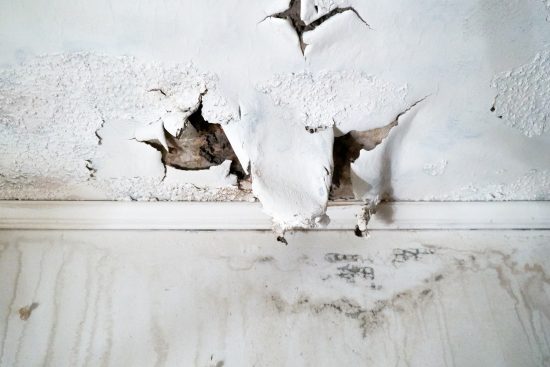
When your property is overtaken by water, you may be overtaken by feelings of being overwhelmed — which is entirely understandable.
Of course, as with anything else in life that throws you for a loop, you’ll want to take a step back and tackle a list of actionable items that thoroughly encompass both your health and safety.
As such, don’t forget to include an asbestos survey in your plan. After all, flooding isn’t just a matter of water damage; rather, it may also loosen and dislodge other fibrous particles that are hazardous to your health. Here’s what you need to know:
A Question of Construction
Asbestos has been used in construction and insulation products for decades, with the height of its use occurring prior to the 1970s. And while asbestos is regulated today as a result of the risks inherent in exposure, it is not banned in the United States.
Consequently, unbeknownst to you, asbestos may exist throughout your property — especially if your home or business was constructed prior to the Environmental Protection Agency’s (EPA) initial crackdown on the substance in the 1980s.
According to the U.S. Consumer Production Safety Commission (CPSC), you can expect to find asbestos primarily in …
- Roofing materials
- Insulation materials
- Textured paints and patching materials
- Within walls and flooring
- Around pipes and plumbing
- And more…
Opening the Floodgates
While asbestos is relatively benign so long as it is covered and undisturbed within a structure, it becomes incredibly hazardous once exposed and rendered airborne. In particular, the U.S. Department of Health and Human Services recognizes asbestos as a human carcinogen, meaning it is capable of causing cancer (as well as mesothelioma and other upper respiratory conditions) in individuals who have been exposed to it.
Thus, flooding can displace and carry asbestos, posing a threat to the building’s residents as well as workers who may come to remediate the site.
Homes and businesses in Florida may be especially vulnerable to such asbestos exposure, especially during hurricane season when storm damage and flooding are liable to dislodge asbestos nearly anywhere in a given structure.
When Asbestos Action Is Inevitable
If your property has taken on extensive enough water damage that a renovation or demolition is necessary, the Florida Department of Environmental Protection requires workers and property owners to adhere to their asbestos removal program, which is a part of the Florida Administrative Code.
“The program’s intent is to minimize the release of asbestos fibers during activities involving the processing, handling and disposal of asbestos-containing material (ACM),” the DEP explains. “Accordingly, the Asbestos [program] specifies work practices to be followed during demolitions and renovations of all structures, installations and buildings.”
Residential properties that contain less than four dwelling units, however, are excluded from the aforementioned requirement — but that doesn’t mean you should go without proper knowledge of and protection from asbestos.
If your home has fallen victim to flooding — be it the result of a natural disaster, plumbing malfunction, or something else — investing in an asbestos survey may be a wise decision. After all, water damage is not only capable of causing mold growth and other forms of contamination, but it may also unwittingly unearth other such hazardous materials that you may not have even known were built into your property.
And if you’re looking for trusted solutions from locally-owned and operated indoor quality experts, you can rely on Luce Air Quality!
Our team not only has experience in mold investigations and water damage assessments, but we also offer certified asbestos surveys that are guaranteed to provide you with the answers and the guidance you need.
To learn more about our services or to schedule your survey today, contact us by calling (904) 803-1014 or emailing info@luceairquality.com!


